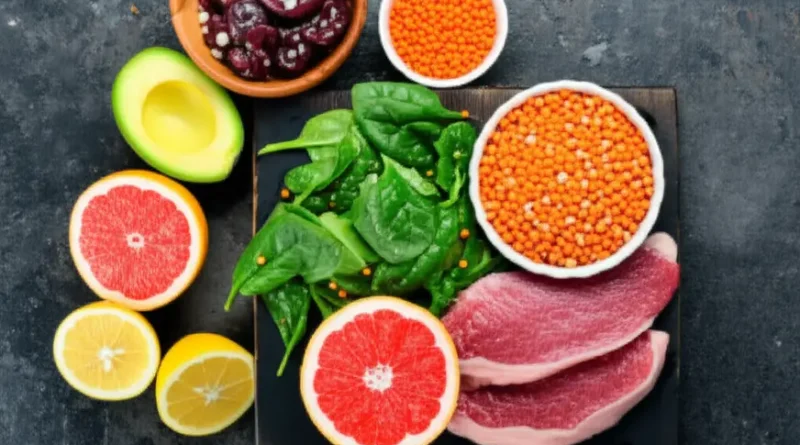The Importance of Iron for Women’s Health
Iron is an essential mineral that plays a critical role in maintaining health, particularly for women. From supporting red blood cell production to maintaining energy levels, iron’s importance cannot be overstated. In this blog post, we’ll explore why iron is a vital nutrient for women, discuss the risks associated with iron deficiency, and highlight effective ways to ensure adequate iron intake.
Women have unique health needs that necessitate a higher iron intake due to physiological factors such as menstruation, pregnancy, and breastfeeding. Consider that during each menstrual cycle, women lose blood, and consequently, iron. The Recommended Dietary Allowance (RDA) for iron during these times increases significantly, with the RDA for premenopausal women set at 18 mg per day compared to 8 mg for adult men. Understanding these differences can help highlight the importance of iron-rich diets for women’s health.
Iron’s Role in the Body
Iron is primarily known for its role in the production of hemoglobin, the protein in red blood cells that transports oxygen throughout the body. Without sufficient iron, the body cannot produce enough healthy red blood cells, leading to iron-deficiency anemia, a condition that can cause fatigue, weakness, and a host of other symptoms.
Furthermore, iron contributes to several other essential bodily functions, including:
- Enzyme function: Iron acts as a co-factor for many enzymes that are involved in energy production and metabolism.
- Immune support: It plays a crucial role in maintaining a healthy immune system, helping the body to fight off infections.
- Brain health: Iron is essential for cognitive functions, as it helps in the synthesis of neurotransmitters that regulate mood and memory.
Consequences of Iron Deficiency
Iron deficiency is one of the most common nutritional deficiencies worldwide, and women are particularly at risk. The consequences of low iron levels can significantly impact individual health and quality of life. Symptoms of iron deficiency may include:
- Fatigue and weakness
- Pale skin
- Dizziness and shortness of breath
- Cold hands and feet
- Heart palpitations
If left untreated, iron deficiency can deepen into iron-deficiency anemia, a more severe condition often requiring medical intervention. Therefore, it is imperative for women to be proactive about their iron status.
Sources of Iron
There are two main types of dietary iron: heme and non-heme iron. Heme iron is found in animal products such as red meat, poultry, and fish, and is typically absorbed more efficiently by the body. Non-heme iron, on the other hand, is derived from plant-based sources, such as lentils, beans, tofu, spinach, and fortified cereals.
Food Sources of Iron
Here’s a closer look at some iron-rich foods that women should consider incorporating into their diets:
- Red Meat: Beef and lamb are excellent sources of heme iron.
- Poultry: Chicken and turkey provide a good amount of heme iron.
- Seafood: Fish and shellfish, particularly oysters and sardines, are fantastic sources.
- Legumes: Beans, lentils, and chickpeas are rich in non-heme iron and great plant-based protein sources.
- Nuts and Seeds: Pumpkin seeds, cashews, and almonds contribute to iron intake.
- Dark Leafy Greens: Spinach, kale, and Swiss chard contain non-heme iron.
- Fortified Foods: Certain cereals and grains are fortified with iron for added benefit.
Improving Iron Absorption
For optimal absorption of non-heme iron, women should pair these iron-rich foods with vitamin C-rich items. Foods like oranges, strawberries, bell peppers, and broccoli can significantly enhance iron absorption when consumed together.
Avoid consuming calcium-rich foods, coffee, tea, and certain dairy products around the same time as iron-rich meals, as they can inhibit iron absorption.
Conclusion
Maintaining adequate iron levels is crucial for women’s health, given their unique physiological needs. Regularly consuming iron-rich foods, monitoring iron status, and understanding how to improve absorption can help women lead healthier, more energetic lives. If you suspect an iron deficiency, consider consulting with a healthcare provider for proper evaluation and personalized advice.

